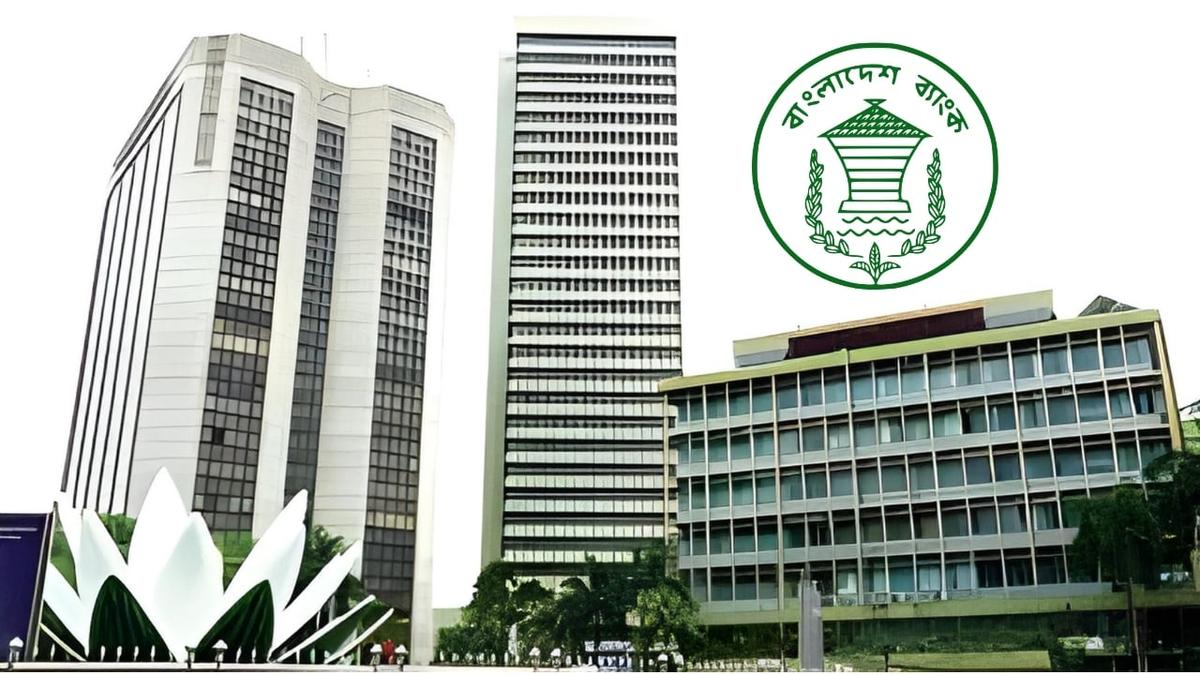Central Bank

When will surge in distressed loans in banking sector stop
Borrowing from banks is increasing, but repayment is not. On top of that, irregularities, scams and collusion with boards are leading to looting of funds. As a result, distressed and defaulted loans are rising uncontrollably. In such a situation, distressed loans in the banking sector have reached Tk 7.56 trillion. By the end of 2024, this amount rose by nearly 59 per cent compared to the previous year. This figure starkly illustrates the fragile state of the country’s financial sector.

One of main causes of crisis in banking sector is dual governance
The sector of Bangladesh’s economy that has been most severely affected in recent times is the banking sector. The banking sector is often compared to the flow of blood in the arteries of a country’s economy. Just as a disruption in the natural flow of blood in a human or animal can cause physical complications or even death, likewise, if the banking sector of a country is not properly and efficiently managed, problems will inevitably arise in various sectors of the economy. Due to financial limitations, entrepreneurs in developing countries like Bangladesh must turn to banks to meet their capital needs. But the banking sector is failing to provide the desired support to entrepreneurs and ordinary borrowers.

Bank bailouts through money printing could ignite inflation
Bank bailouts through money printing could ignite inflation

How useful 'crawling peg' in determining dollar rate
Bangladesh Bank has made bank interest rates 'market-based' to curb rising inflation. As a result, as interest rates on all types of loans increased, so did the rate of the dollar. In the meantime, the price of the dollar has been increased from 110 taka to 117 taka.

BB decision over journos' entry remind about ancient monarchy
The parent organization of the financial institutions of Bangladesh is the Bangladesh Bank or the Central Bank. The recent decision by the Bangladesh Bank to impose restrictions on journalists' access to its premises has sparked controversy. According to the new policy, journalists can only enter the premises with specific authorization passes, and even then, they are restricted to meeting only the designated officials. Previously, journalists had unrestricted access to various departments of the central bank.

Upazila polls: Central bank seeks information of candidates to identify loan defaulters
Bangladesh Bank has instructed all returning officers to provide information about the candidates of the second phase of upazila parishad (UP) elections so that loan defaulters do not become candidates.

Bank Asia to take over Alfalh
Bank Asia is set to take over Alfalah, a foreign bank, in a departure from Bangladesh Bank's decision that no more merger of banks will be allowed.

Dhaka district receives lion's share of remittances so far in current fiscal: BB
This figure means that most of the families of expatriates stay in Dhaka or they have most of their accounts in the bank branches of Dhaka.

BASIC Bank merging with City Bank
BASIC Bank is expected to be acquired by the private sector lender City Bank, as the central bank pushes forward with its initiative to facilitate the acquisition of weaker banks by stronger ones.

Legal reforms are crucial for bank consolidation and identification of willful defaulters
At this moment, the most discussed issue in the banking sector is weak bank consolidation and willful defaulters being identified and brought under strict penalties. For a long time, the country's economists and bankers have been suggesting reforms for the banking sector, but the authorities have not heeded them. Recently, somewhat unexpectedly, Bangladesh Bank has instructed weak banks to merge with stronger ones in order to consolidate the banking sector. Simultaneously, there have been indications of adopting stringent measures against willful defaulters, who are considered as a 'menace' to the banking sector due to their significant influence and notoriety. Many have raised questions about why Bangladesh Bank has become vigilant regarding willful defaulters of loans and why it is initiating efforts for the consolidation of weak banks. Bangladesh Bank has not taken consistent or self-motivated initiatives to enforce stringent legal measures to address weak bank consolidation and identify willful defaulters of loans.
